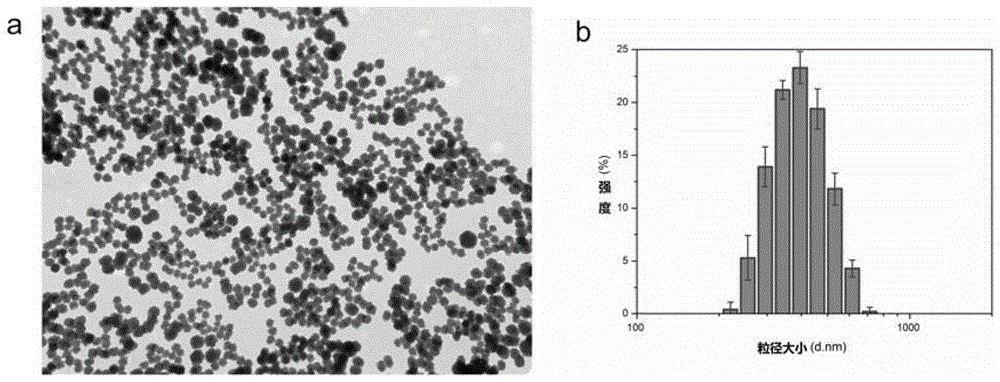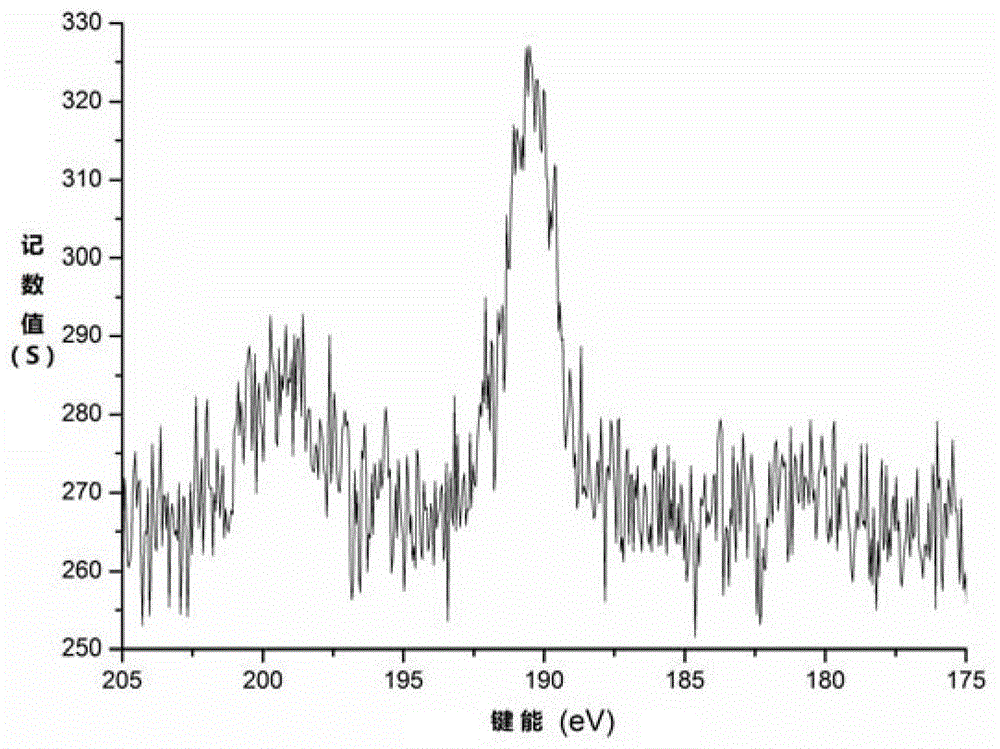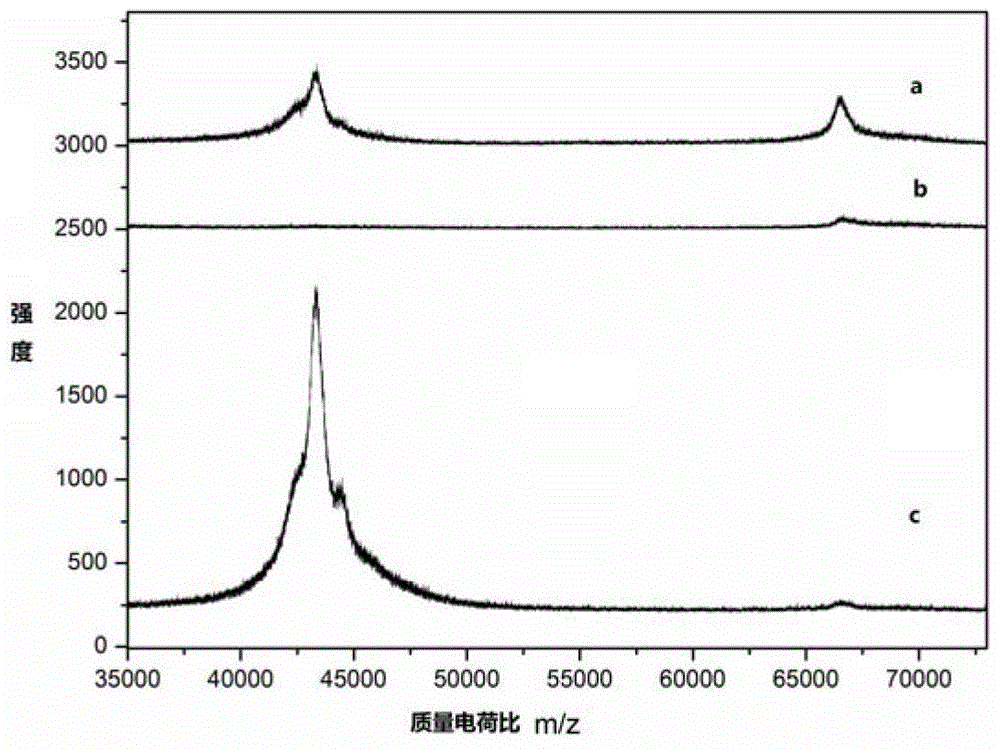A kind of polymer microsphere and its preparation and application
A polymer and microsphere technology, applied in the field of glycoprotein enrichment, can solve the problems of low efficiency of post-modification grafting strategy, cumbersome steps, unfavorable pretreatment of large-scale protein samples, etc., to achieve selective enrichment and reaction efficiency High, clean effect of polymer particles
- Summary
- Abstract
- Description
- Claims
- Application Information
AI Technical Summary
Problems solved by technology
Method used
Image
Examples
Embodiment 1
[0022] 1. Preparation of monodisperse core-shell polymer nanoparticles
[0023] In a 150 mL round bottom flask, add 80 mL of acetonitrile, add 105 mg of methacrylic acid (MAA), 755 mg of N, N'-methylenebisacrylamide (MBAA) and 17 mg of azobisisobutyronitrile (AIBN), and sonicate for 1 minute , so that the added reagents were dissolved to form a uniform solution, a Dean-Stark receiver was mounted on the flask, and a condenser was connected to it, after which nitrogen gas was passed for 15 minutes, a magnetic stirrer was added, and the magnetic stirrer was maintained at a speed of 300 rad / min. The reaction device was placed in an oil bath and heated evenly and slowly, and the reactor rose from room temperature to 115° C. within 30 minutes. Under the condition of maintaining 115° C., half of the solvent in the reaction system was distilled off within 2 hours, the reaction was stopped, and cooled to room temperature. Then use a high-speed centrifuge to centrifuge at a speed of 10...
Embodiment 2
[0028] Glycoprotein (horseradish peroxidase, HRP) and non-glycoprotein (bovine serum albumin, BSA) were mixed at a mass ratio of 1:1, and dissolved in 50 mM ammonium bicarbonate buffer solution (pH9.0), thereby A protein mixture solution with a concentration of 100 ng / μL was prepared.
[0029] Weigh 1 mg of the poly(MBAA-co-MAA)@(MBAA-co-APBA) core-shell polymer nanoparticles prepared in Example 1, disperse them in 200 μL of the above protein solution, and incubate at room temperature for 2 hours, Centrifuge after the reaction, and save the supernatant for identification by mass spectrometry. The material was washed several times with 50mM ammonium bicarbonate buffer solution (pH9.0), and the supernatant was discarded by centrifugation. Add 20 μL of acetonitrile:water:trifluoroacetic acid mixed solution with a volume ratio of 50:49:1 to the separated material, incubate at room temperature for 1 hour, and centrifuge to remove the enriched product. The protein stock solution, ...
PUM
| Property | Measurement | Unit |
|---|---|---|
| particle diameter | aaaaa | aaaaa |
| particle diameter | aaaaa | aaaaa |
| particle diameter | aaaaa | aaaaa |
Abstract
Description
Claims
Application Information
 Login to View More
Login to View More - R&D
- Intellectual Property
- Life Sciences
- Materials
- Tech Scout
- Unparalleled Data Quality
- Higher Quality Content
- 60% Fewer Hallucinations
Browse by: Latest US Patents, China's latest patents, Technical Efficacy Thesaurus, Application Domain, Technology Topic, Popular Technical Reports.
© 2025 PatSnap. All rights reserved.Legal|Privacy policy|Modern Slavery Act Transparency Statement|Sitemap|About US| Contact US: help@patsnap.com



